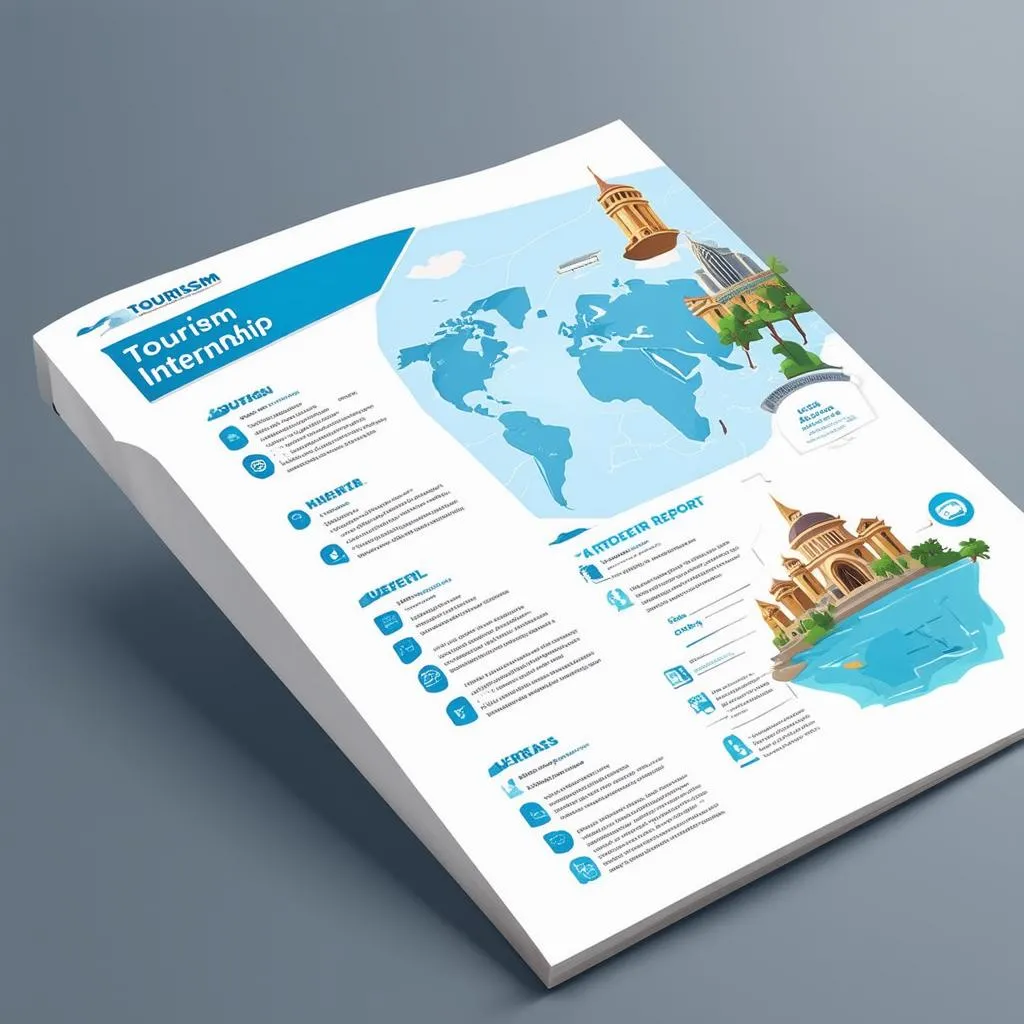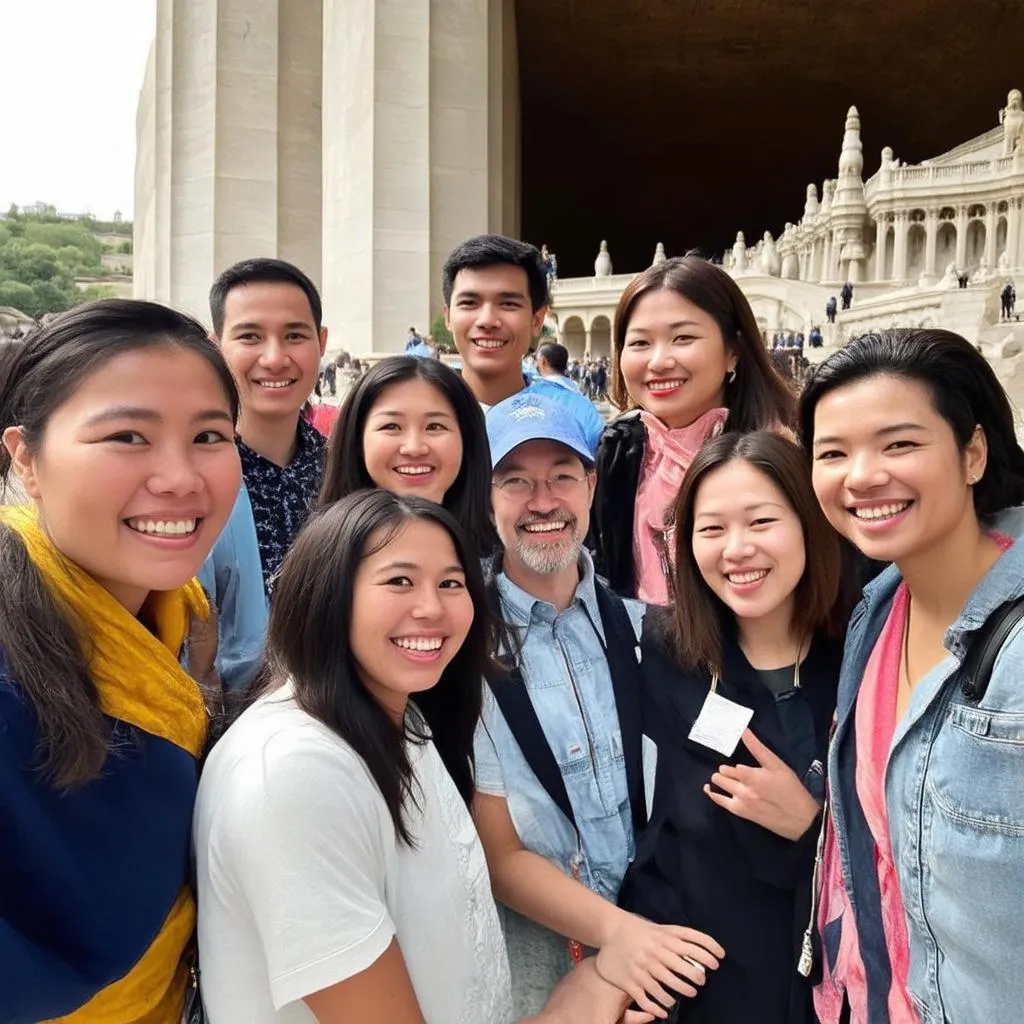“Not all those who wander are lost.” – J.R.R. Tolkien
This age-old quote resonates with every wanderlust-stricken soul, especially those who’ve just completed a thrilling internship in the ever-vibrant tourism industry. But like every adventure deserves a grand finale, your internship journey deserves a stellar report that reflects your experiences and learnings. Fear not, future travel professionals, for this guide will equip you with all you need to know about crafting a top-notch tourism internship report that’s informative, engaging, and showcases your newfound expertise.
Diving Deep: Understanding the Essence of a Tourism Internship Report
A tourism internship report isn’t just a formality; it’s your passport to demonstrating your understanding of the industry and your ability to apply theoretical knowledge to real-world scenarios. Whether you’ve spent your internship crafting itineraries for Vietnam tours, assisting with hotel operations in bustling Hanoi, or guiding tourists through the ancient town of Hoi An, your report needs to encapsulate your journey.
What to Include in Your Report: A Detailed Roadmap
Think of your report as a well-planned itinerary. It should guide the reader seamlessly through your internship experience. Here’s a breakdown of the essential components:
1. Introduction: Setting the Stage
- Begin with a captivating hook that draws the reader in. Consider using a quote, a brief anecdote from your internship, or a thought-provoking question about the tourism industry.
- Provide some background information about your internship: Where did you intern? What was the focus of your internship? What were your key responsibilities?
- Conclude your introduction with a clear thesis statement that outlines the purpose and scope of your report.
2. Body Paragraphs: Unpacking Your Experience
This is where you delve into the heart of your internship. Utilize headings and subheadings to organize your thoughts and make the report easily digestible.
- Company Overview: Briefly describe the organization where you interned. What services do they offer? What is their mission? What is their target market?
- Tasks and Responsibilities: Provide a detailed account of your daily tasks and responsibilities during the internship. Did you handle customer inquiries? Were you involved in marketing campaigns? Did you assist with event planning? Be specific and provide concrete examples.
- Skills and Knowledge Gained: What specific skills did you develop during your internship? Did you enhance your communication, problem-solving, or teamwork abilities? How has your understanding of the tourism industry evolved?
- Challenges and Solutions: Every internship comes with its share of challenges. Briefly discuss any obstacles you faced and how you overcame them. Did you encounter a difficult customer? Did you need to adapt to a new software program? Sharing your problem-solving skills highlights your adaptability.
- Major Projects and Accomplishments: Highlight any significant projects you undertook during your internship. What was the objective of the project? What was your role? What was the outcome? Quantify your achievements whenever possible. For example, instead of saying “I helped increase social media engagement,” state “I implemented a new social media strategy that resulted in a 15% increase in engagement within two months.”
3. Conclusion: Reflecting and Looking Ahead
- Briefly summarize your overall internship experience.
- Reflect on your personal and professional growth. How has this internship shaped your career aspirations?
- Offer recommendations for the organization based on your observations and experiences.
- End on a positive note, expressing your gratitude for the internship opportunity.
4. Appendix
This section should include any supporting documentation, such as:
- Your internship contract
- Performance evaluations
- Samples of your work (e.g., marketing materials, itineraries, presentations)
Weaving in SEO and User Intent:
While your report primarily serves an academic purpose, incorporating SEO elements can increase its visibility and reach a wider audience.
- Keywords: Naturally weave in relevant keywords related to tourism, your internship location, and your specific role. For example, if you interned as a tour guide in Ho Chi Minh City, consider using keywords like “Ho Chi Minh City tours,” “Vietnam travel guide,” “tourism internship report,” etc.
- LSI Keywords: Utilize Latent Semantic Indexing (LSI) keywords – words that are semantically related to your main keywords. For instance, instead of repeatedly using “tourism,” consider incorporating words like “travel,” “hospitality,” “destinations,” “attractions,” “cultural experiences.”
- User Intent: Think like your audience. What questions might someone searching for “tourism internship report” have? Address these questions within your report. This could include questions like:
- What are the benefits of a tourism internship?
- What skills are essential for a successful career in tourism?
- What are some common challenges faced by tourism professionals?
Infusing Your Report with Storytelling and Local Flavor
Remember, a well-written report goes beyond listing your tasks. It should captivate your reader and provide a glimpse into your unique experience.
- Storytelling: Everyone loves a good story! Incorporate anecdotes from your internship to illustrate your points and make your report more engaging. Did you have a memorable encounter with a tourist? Did you learn something surprising about the local culture? Did you face a challenging situation that tested your skills?
- Local References: Bring your report to life by mentioning specific locations, landmarks, and cultural experiences related to your internship. Did you help organize a tour to Ha Long Bay? Did you assist with hotel bookings in the heart of Hanoi’s Old Quarter? These details add authenticity and richness to your narrative.
Tips for Success:
- Proofread Carefully: Ensure your report is free of grammatical errors and typos.
- Use a Professional Tone: Maintain a formal and professional writing style throughout your report.
- Seek Feedback: Ask a friend, colleague, or mentor to review your report before submitting it.
 Tourism Internship Report Cover
Tourism Internship Report Cover
Additional Tips to Elevate Your Report:
- Visual Appeal: Incorporate visuals like images, charts, and graphs to make your report more visually engaging and break up large blocks of text.
- Industry Insights: Research current trends and challenges within the tourism industry and relate them to your internship experience.
- Personal Touch: While maintaining professionalism, let your personality shine through in your writing. Share your passion for tourism and your enthusiasm for your internship experience.
 Diverse Group of People Enjoying a City Tour
Diverse Group of People Enjoying a City Tour
By following this comprehensive guide, you can confidently craft a stellar tourism internship report that showcases your skills, knowledge, and passion for the industry. Remember, your report is a testament to your journey, so make it count!
If you’re eager to delve deeper into the world of tourism and explore exciting career opportunities, be sure to visit travelcar.edu.vn.
Good luck with your report, and here’s to many more adventures in the world of travel and tourism!